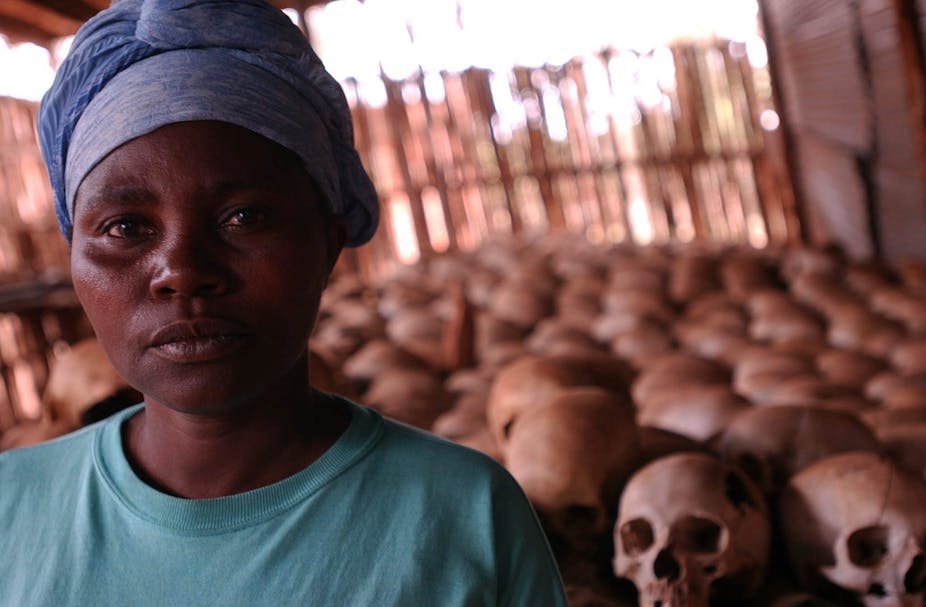The arrest of Rwanda’s intelligence chief Karenzi Karake by the British government seems to be part of a long-running attempt by a number of countries to issue justice for Rwanda’s bloody history.
Karake is being held in London after Spain called for his arrest for his alleged involvement in revenge killings after the 1994 Genocide in his country.
While taking action now might help ease the consciences of those who failed to stop the massacres when they were actually happening, it does little to actually help the people of Rwanda.
The backstory
On the night of April 6 1994, President Juvenal Habyarimana was assassinated by unknown fighters while flying back to Rwanda. This event triggered the Rwandan Genocide against the Tutsi which ravaged the entire country as neighbours killed neighbours. The perpetrators claimed massacres were needed in order to protect the nation from the invading Tutsi-dominated Rwanda Patriotic Front (RPF), which Rwanda had been fighting since 1990.
Hutu extremists believed the RPF wanted to re-establish Tutsi ethnic dominance over the majority Hutu population, just as happened during the Belgian colonial period of 1922-1962.
Within days of the start of the killing, other countries retreated from Rwanda. They removed their citizens and downgraded the UN aid mission there. The world looked away as within around 100 days, over 800,000 Tutsis and moderate Hutus were killed.
The massacres only ceased when the RPF’s military wing, the Rwanda Patriotic Army (RPA) fully invaded the country and expelled the genocide forces into eastern Zaire, now named the Democratic Republic of Congo (DRC).
Long silence
Of course, events of this kind are never quite that easy to define. Genocide is inevitably composed of various elements that all play a role in how the causes of conflict are remembered.
Karake is an example of this problem. He is accused of committing mass atrocities against Rwandan civilians both during and after the genocide yet he fought for the RPA – credited for bringing an end to the massacres. Stories such as his, and of the Rwandans killed by the RPA during the genocide are less well-known.
Within months of the end of the genocide, the UN Gersony Report estimated that the RPA killed anywhere between 25,000 to 45,000 people during the genocide. But the report was suppressed by the UN in order to foster improved relations with the new RPF-dominated Rwandan government.

The massacres are not openly discussed in Rwanda. The RPA, now named the Rwanda Defence Force (RDF), does not deny that some of its troops participated in revenge killings.
I have spoken to RDF commanders who admit that killings took place, but attribute most of the individual cases to circumstances involving troops succumbing to mental insanity after witnessing the results of previous massacres.
Despite this willingness to discuss the subject, the military shies away from public discussion of the massacres. Justice for the victims was found only through closed military court cases.
Many Rwandans fear talking about revenge killings for concern of being accused of minimising the genocide – which is illegal under genocide denial laws. In my research, one Rwandan quietly commented that it would take another two generations before Rwandans feel free to openly discuss RPA killings.
Moving on
Karake’s arrest does not help Rwanda grapple with its past or offer justice to the victims of the genocide. It instead reinforces Rwanda’s sense that it cannot rely on other countries to help in a meaningful way. It is but the latest example of international hypocrisy from the countries that failed to stop the genocide in 1994. They took no action back then and now arrest someone who actually did.
Rwanda is still trying to understand its history in order to move forward. We have to accept that it will take time for the country to fully recover and be ready to handle all the complexities of its bloody past. Arresting Karake might seem like justice, but it happens at the expense of Rwanda’s development.

